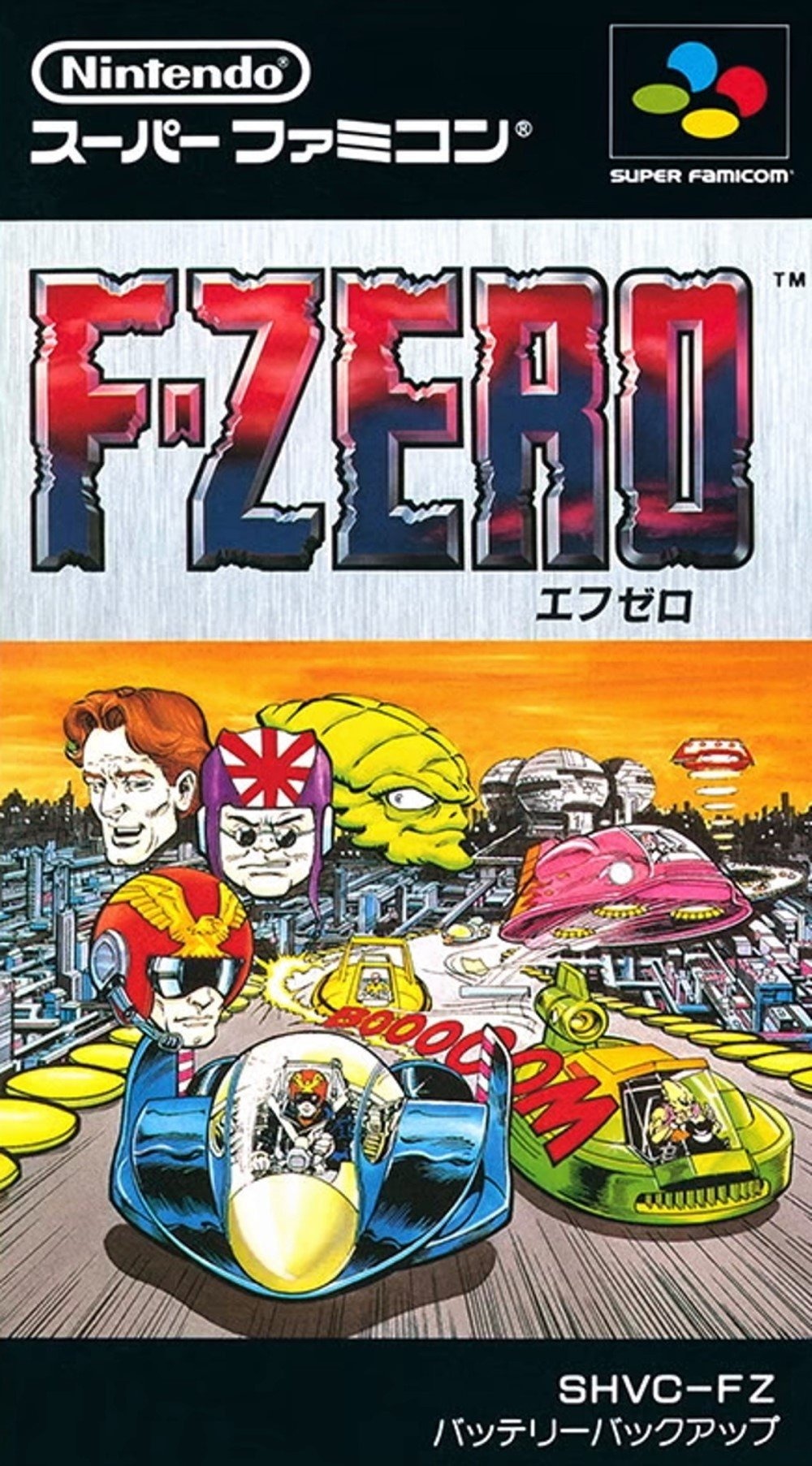“F-Zero”: (1990): Revolutionizing Racing in the Realm of Video Games – SNES Review

In 1990, Nintendo released “F-Zero” for the Super Nintendo Entertainment System (SNES), a game that not only pushed the boundaries of racing games but also showcased the technical capabilities of the then-new console. Developed by Nintendo’s EAD division, “F-Zero” was a futuristic racing game that set a new standard for the genre, combining high-speed gameplay, innovative graphics, and an immersive sci-fi setting.
Gameplay Dynamics: The Need for Futuristic Speed
“F-Zero” distinguished itself from contemporaneous racing games with its emphasis on speed and precision. The game was set in a futuristic world where players raced hovercars at speeds of over 400 km/h. This focus on high velocity created an exhilarating gaming experience that was both challenging and rewarding.
The game featured four different hovercar models, each with its own set of attributes in terms of acceleration, top speed, and durability. This variety allowed players to choose a vehicle that matched their playing style, adding a strategic element to the high-speed racing.
One of the most notable aspects of “F-Zero” was its track design. The game offered a variety of tracks, each with its unique layout, obstacles, and hazards. The tracks required players to navigate sharp turns, jumps, and other futuristic elements, demanding quick reflexes and careful planning.
Technical Innovations: Showcasing the SNES’s Capabilities
“F-Zero” was one of the first games to utilize the Mode 7 scrolling technique, a graphics mode unique to the SNES that allowed for scaling and rotation of backgrounds, creating a pseudo-3D effect. This technology was used to great effect in “F-Zero,” giving players a sense of depth and speed that was unparalleled at the time.
The game’s use of Mode 7 allowed for the creation of fluid, dynamic racetracks that appeared to stretch into the horizon. This graphical innovation was not just a technical showcase but also enhanced the gameplay, making “F-Zero” a visually striking and immersive experience.
Sound and Music: An Auditory Adrenaline Rush
The soundtrack of “F-Zero,” composed by Yumiko Kanki and Naoto Ishida, was another highlight of the game. The music was energetic and futuristic, perfectly complementing the game’s high-speed racing and sci-fi setting. Each track had its own theme, ranging from fast-paced, adrenaline-pumping tunes to more atmospheric compositions, adding to the game’s immersive experience.
Behind the Scenes: Crafting a Futuristic Racing Vision
The development of “F-Zero” was driven by the desire to create a unique racing game that would showcase the capabilities of the SNES. The development team, led by Kazunobu Shimizu, Shigeru Miyamoto, and Takaya Imamura, aimed to create a game that was not only technologically impressive but also fun and challenging to play.
One of the challenges faced during development was optimizing the game’s graphics to run smoothly while maintaining a sense of speed. The team’s innovative use of Mode 7 and careful track design were crucial in overcoming this challenge.
Cultural Impact: Setting the Pace for Future Racing Games
“F-Zero” had a significant impact on the racing genre. It was one of the first games to introduce a futuristic racing theme, a concept that would be emulated by numerous other games in the following years. The game’s emphasis on speed and precision also influenced the design of later racing games, setting a new standard for the genre.
In addition to its influence on gaming, “F-Zero” also became a part of wider pop culture, with its characters and imagery appearing in various media and merchandise.
Final Thoughts
“F-Zero” stands as a landmark title in the history of video gaming. It combined groundbreaking technical innovations with fast-paced, strategic gameplay to create an experience that was ahead of its time. The game not only showcased the capabilities of the SNES but also set new standards for the racing genre, influencing the development of future games. More than just a technical showcase, “F-Zero” was a thrilling, immersive experience that remains a beloved classic.




